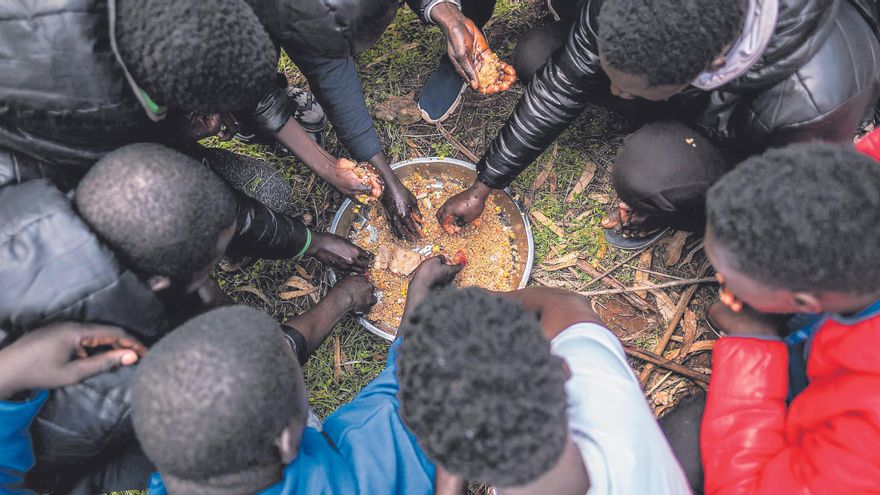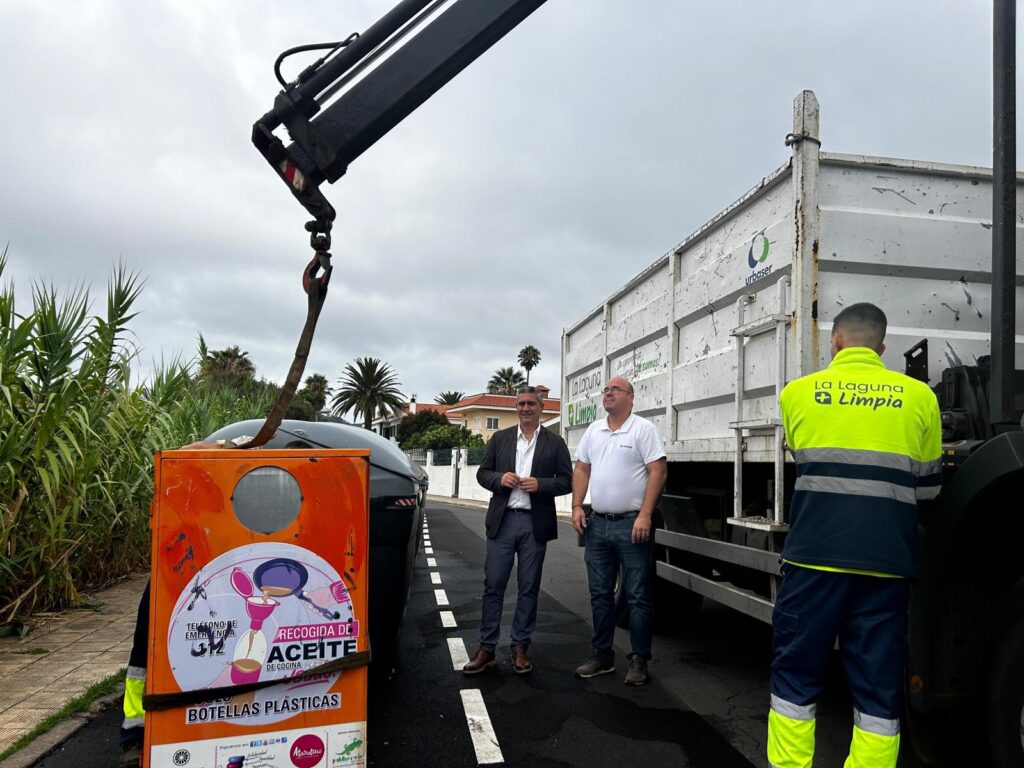
He flees the poverty that grips his family, because, as his mother’s only son, he feels morally obliged to earn money to help her and her sisters. But he also escapes from a general sociopolitical situation, which does not allow him and his friends to have hope for a dignified and prosperous life. Djibril says that the fruit of his daily work had to be spent that same day on eating.
Leaves the camp The pits, in La Laguna, with some papers kept in a plastic case. He already knows that she has a plane ticket available to travel from Tenerife to Madrid. Friday was his last full day on the Island, since yesterday Saturday he was scheduled to arrive in the capital of Spain. Djibril knows how to say his age in Spanish, thanks to Google translator, and he is one of the thousands of African migrants in an irregular situation who have arrived in cayuco in recent months to the Archipelago and who are being distributed throughout the Peninsula, in the face of protests from some political authorities of their destinations.
He was born and lived in a neighborhood in the town of Saint Louis, northwest of Senegal. He is 24 years old and is the only son of his mother. He relates that he was studying, but, given the need that his family had to earn money, he had to leave his training and start working to support his mother and his sisters.
In his country of origin he worked as an electrician, until he decided to get on a boat and try to improve his future in Europe. But if he had a job he could consider himself lucky. According to Guy Marius Sagna, deputy of the opposition party African Patriots of Senegal for Work, Ethics and Fraternity (Pastef), every year there are 300,000 new young people in his country who are of working age, but only one in ten succeeds. .
Djibril comments that the income from his work activity was spent on being able to eat every day, without having any certainty of what would happen the next day or the next week. And he aspired to more, to have a perspective of the future and well-being for his people.
And, if I looked around, I didn’t have many good references either. Most of his colleagues are currently in prison.
He was aware that getting into a canoe to travel the Atlantic Route to Europe was a risk, but also his only chance to save himself and his loved ones. He comments that “I am not here to hesitate, but to get something and return to Senegal.” He explains that he left “a critical situation” in his country.
They have also explained to him that “the situation here is also very difficult.” But he is clear that only by working as he did in his place of origin will he be able to raise some money to help his family and get ahead in Spain.
Being able to pursue the dream of starting a new life in Europe cost him about 60,000 CFA francs; That is, approximately 1,000 euros.
He relates that his journey in a canoe lasted for eight days. As in many other cases, the boat left the Senegalese coast with three engines, but they broke down when they were off the coast of Western Sahara. Their food also ran out. In the end, they managed to get one of the outboard thrusters to start and thus they were able to reach the waters near Tenerife.
No family or friends
Once they disembarked on the Island and were assisted by the staff and volunteers of the Spanish Red Cross to cover their basic needs, one of the situations that most impacted them was the investigative work carried out by the National Police agents in their search. of information. He comments that he felt pressured in the three days following his arrival. He did not expect that type of action from these officials. It is worth remembering that the objective of agents from the Unit against Immigration and Document Falsehood Networks (Ucrif) is to determine who or who served as skippers on the cayuco, to take the helm, maintain order on the boat and distribute the food and drink. drink. These individuals act on behalf of whoever charges migrants to board the boat, which always stays on land.
Djibril does not have any family or friends in Spain or the rest of Europe. He assures that he would like to stay in Tenerife, because he believes that on the Island he would have more job opportunities and easier to obtain the documentation he needs. But he, he clarifies, he would also like to remain “for the kindness of the people.” He considers that it is easier to integrate into an island society like Tenerife than on the Peninsula.
He states that the migrants who have already arrived on the Peninsula tell those who still remain in the Archipelago that the reception by the people in certain provinces is not as positive as in Canary Islands. But the truth is that she already has a plane ticket with which he traveled to Madrid yesterday.
Breakfast, lunch and dinner
Djibril positively values the attention he receives at the Las Canteras camp and values and appreciates that basic attention. “Thank goodness they give us breakfast, lunch and dinner,” he clarifies, since in other places it could be worse.
Once in Madrid or other places on the Peninsula, he would like to work in the same way he did in Saint Louis, but he is fully aware that in Spain you need to have a degree to access that job. For that reason, his main priority is to get a job to support himself, his mother and his sisters. And then try to achieve training that allows you to obtain a qualified position.
When the young Senegalese is asked if he believes that a change of government in his country will guarantee an improvement in the social and economic situation, it is a compatriot who answers, although he prefers to remain anonymous.
A change of government
“We believe that, when the government changes, the country will be better,” says this other migrant. He assures that “I pray that we can return to Senegal at an intense time, in about three years.” He considers that it is essential that an important part of those who have emigrated to Europe in recent years return to participate in change and development. “If we stay here we are not going to achieve anything,” he says.
“My project is that companies here can invest and collaborate in the development of my country, whether with hotels or Spanish schools, for example,” says this young man, also a native of Saint Louis.
Djibril puts his case of papers inside his padded coat and says goodbye politely. He is one of the hundreds of young people who wander along the Las Canteras highway and through La Laguna while he waits for any opportunity that will allow him to prosper and fulfill his goal of saving his loved ones. All so as not to return to Senegal with the feeling of having failed.
















